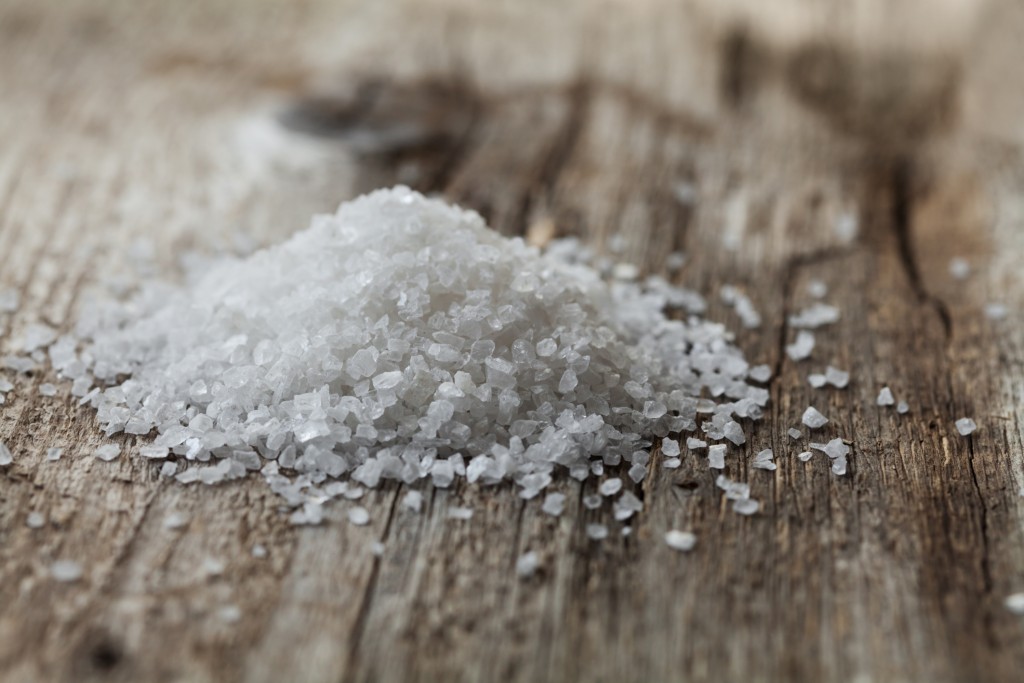Alert: Are You Salting Yourself Sick?


Americans love their salt. It’s in all our processed, packaged and restaurant foods, and we add even more of it to our food as we eat it at the table. Although salt is a necessary nutrient to human health, and a certain amount of it is essential for your good health, you may not know that Americans are eating twice as much salt than is recommended by healthcare professionals. One of the best, most immediate things you can do to improve your health is to better manage your salt intake. Let me tell you why and give you some suggestions how to do that.
Health Hazards of Too Much Salt
When I ask my patients about their salt intake, most of them tell me they’re adding salt to their foods at each meal. Current health statistics show that Americans are paying the price of eating all that salt by getting sicker and sicker with salt-related diseases. These include:
- Hypertension/kidney disease – too high blood pressure can tax kidneys.
- Heart disease/stroke – too high blood/tissue salt levels cause your heart to work harder to constantly try to normalize the salt balance. It can also cause electrolyte imbalance that can throw your heart rhythms out of whack.
- Diabetes – higher sugar levels can also cause salt imbalances along with blood pressure, kidney and heart complications.
- Osteoporosis – high salt levels interfere with calcium absorption into bones.
According to the Centers for Disease Control, the death rates for Americans from salt-intake related diseases continue to increase. Yet, some interesting, recent studies [Theodore A. Kotchen, Allen W. Cowley, Edward D. Frohlich. Salt in Health and Disease — A Delicate Balance. New England Journal of Medicine, 2013; 368 (13): 1229 DOI: 10.1056/NEJMra1212606] on the health benefits of decreasing salt intake were carried out recently in Great Britain and Finland. The results were recently published in The New England Journal of Medicine with findings that could benefit Americans significantly.
In those studies, national salt-reduction programs were undertaken which resulted in lower sodium intake in their participants. The results were decreased risk of death from stroke or coronary artery disease by 75%-80%. The researchers concluded that reducing high salt intakes to a more normal level would be beneficial.
Prior studies done in 2010 in Germany [Klaus, D; Hoyer, J; Middeke, M. Salt Restriction for the Prevention of Cardiovascular Disease. Dtsch Arztebl Int, 2010; 107[26]: 457-62], revealed that people whose salt intake is 6 grams or more per day are at increased risk of death from cardiovascular events. In addition, the risks of damage to health from ongoing hypertension are high. Yet, the salt intake in westernized nations, America included, average 8-12 grams of salt per day! Again, these researchers recommended decreasing salt intake by 40% -50% to reach a 5-6 gram salt intake level per day.
How Can You Decrease Your Salt Intake?
Your health depends on a good balance of sodium to the other important minerals in your blood and tissues. Your nerves use salt “ions” to transmit messages and it is present in just the right mixture in a “bath” that all the cells of your body float in. When you intake too much salt, you throw these delicate systems out of balance. Did you know that the under eye puffiness you wake up with, or swollen ankles, can also be a result of too much salt in your system? It’s a result of your body drawing fluid into your tissues and causing you to retain water and become bloated. Here are some suggestions to reduce your sodium intake.
1. Normalize salt intake. The American Heart Association, as well as the Harvard School of Public Health, believes that cutting salt intake to about 1,500 mg of sodium per day could significantly lower your risk of hypertension and heart/stroke events. If you have special health concerns like hypertension, kidney disease or diabetes, are middle-aged or older, your doctor may want you to even further lower your salt intake to 1,200 mg. Read nutrition labels for sodium levels of the foods you eat. Know also that words Na (salt), soda or sodium biker refer to salt content too.
2. Avoid adding salt to your foods while cooking.
3. If you use canned vegetables, empty them into a colander in the sink and rinse them off with cool water for 30 seconds to wash off the extra salt before adding them to your food.
4. Use spices and herb mixtures at the table to add extra flavor instead of salt. Commercial herb/spice blends like Mrs. Dash offers flavor without the salt.
5. Minimize processed, packaged foods that require preparation. Most contain alot of extra salt.
6. For snacks – try unsalted or very lightly salted nuts rather than pretzels, popcorn, etc. The nuts contain good fats and vitamins whereas the others are empty calories and a lot of salt.
7. When dining out, ask your server if your meal can be prepared without salt.
8. Sea salt: Even though it has a little more minerals in it, sea salt has the same sodium content, 40%, as regular table salt.
Your body only requires a very small amount of salt per day for healthy function. Yet, the average American eats 3,400 mg of salt a day – far beyond what you require for good health. If you stick to mostly fresh foods, limit your use of table salt and cut down on salty snacks, you can reduce your risk of salt-related diseases to help you live healthier and longer.